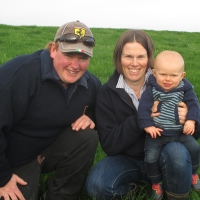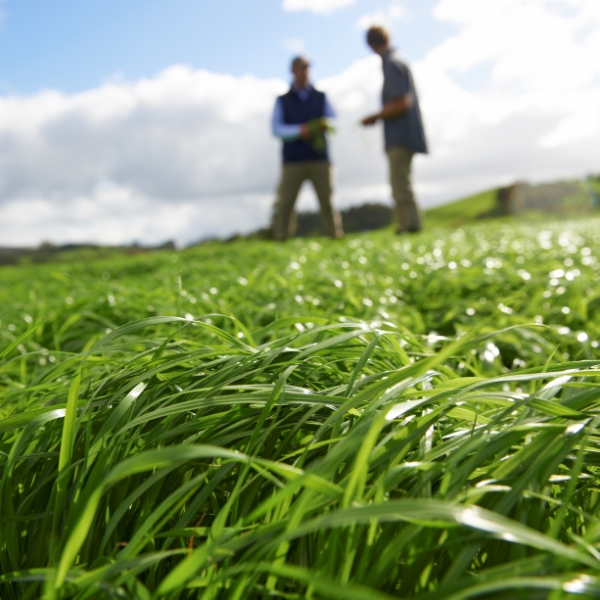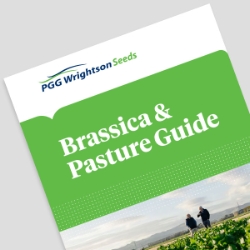Delish
Tetraploid short rotation ryegrass

- More rapid, reliable establishment than diploid types
- High dry matter production throughout the year
- High palatability
- Excellent summer forage quality (low aftermath heading)
- Improved disease resistance
- Ideal for undersowing
Delish® is a high yielding, fine leaved and densely tillered tetraploid short rotation (hybrid) ryegrass bred for improved disease resistance, persistence and low aftermath heading. Not only is Delish a tasty tetraploid but it is an Italian ryegrass crossed with a perennial ryegrass, providing you with the best attributes of each. Rapid, reliable establishment paired with a late heading date and low aftermath heading for excellent late spring/ summer quality and greater pasture longevity than an Italian ryegrass.
Heading Date
| Early | Mid-Season | Late | Very Late |
| Delish®: 9 days later than Nui |
Sowing and Establishment
Delish tetraploid short rotation ryegrass seed is heavier than diploid seed, so ideally should be sown at a 40% higher rate than diploid cultivars. Sow at a minimum of 22 kg/ha in a mix with Superstrike® treated clover, or added to a perennial pasture mix such as Base tetraploid perennial ryegrass at 4-7 kg/ha. In an undersowing situation, sow Superstrike treated seed at 14 kg/ha. Delish performs best in paddocks with reasonable soil moisture and medium to high soil fertility.
Sowing Rate
Pure sward 22-28 kg/ha
Undersowing 14 kg/ha
Pasture mix 4-7 kg/ha
- Soil Fertility High (Olsen P 18+)
- Pasture Life 2 - 5 years

Michael and Emma Sutherland have been using Delish AR1 short rotation ryegrass for several years now and find its quality combined with its excellent growth paramount in the finishing of their lambs and cattle. Michael says “that Delish is a very palatable and clover friendly pasture option because of being a Tetraploid.”





